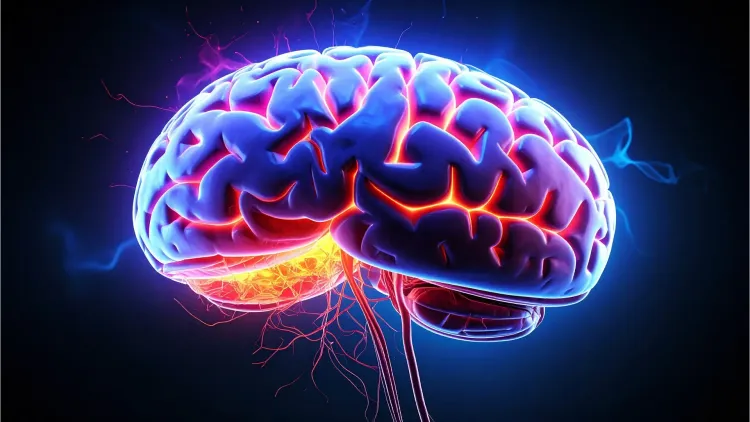Can Bacteria in Your Mouth Increase the Risk of Parkinson's Disease?

Synopsis
Key Takeaways
- Oral bacteria can influence brain health.
- The study identifies a potential link between gut microbiota and Parkinson's disease.
- S. mutans and its metabolites may play a significant role in disease progression.
- Targeting the oral-gut microbiome could lead to new treatments.
- Research highlights the importance of oral hygiene.
New Delhi, Sep 24 (NationPress) Oral bacteria, once established in the gut, may influence neurons in the brain and possibly initiate the onset of Parkinson's disease, as revealed by a recent study.
Researchers from the Pohang University of Science and Technology in South Korea uncovered the mechanism through which metabolites generated by oral bacteria in the gut could lead to the development of Parkinson's disease—a significant neurological condition marked by tremors, stiffness, and reduced movement.
Professor Ara Koh stated, "Our research offers a mechanistic insight into how oral microbes residing in the gut can impact the brain and play a role in the progression of Parkinson's disease."
"This underscores the potential for targeting the gut microbiota as a therapeutic approach, paving a new path for the treatment of Parkinson's."
While earlier studies indicated that the gut microbiota of those with Parkinson's disease differs from that of healthy individuals, the specific microbes and metabolites involved have not been well defined.
The new research, published in the journal Nature Communications, revealed a heightened presence of Streptococcus mutans—a common oral bacterium responsible for dental cavities—in the gut microbiome of patients with Parkinson's disease.
Of particular significance, S. mutans produces urocanate reductase (UrdA) and its metabolite imidazole propionate (ImP), both of which were found at increased levels in the gut and bloodstream of patients.
ImP seemed capable of entering systemic circulation, reaching the brain, and contributing to the degeneration of dopaminergic neurons.
In mouse models, the researchers introduced S. mutans into the gut or genetically modified E. coli to express UrdA.
This led to heightened ImP levels in the blood and brain, alongside the signature symptoms of Parkinson's disease: loss of dopaminergic neurons, increased neuroinflammation, impaired motor function, and enhanced aggregation of alpha-synuclein, a protein critical to disease progression.
Further experiments indicated that these effects are dependent on the activation of the signaling protein complex mTORC1.
Administering an mTORC1 inhibitor to the mice significantly decreased neuroinflammation, neuronal loss, alpha-synuclein aggregation, and motor impairment.
This suggests that targeting the oral-gut microbiome and its metabolites may present innovative therapeutic options for Parkinson's disease.









